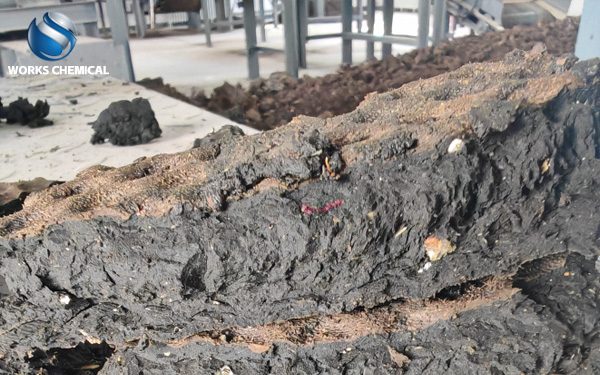
In the field of municipal sludge treatment, the plate and frame filter press, as an efficient and reliable solid-liquid separation device, has always held an important position. The emergence of sludge enhancers has brought a new opportunity for the performance improvement of plate and frame filter presses. The two work together to achieve remarkable results in sludge dewatering treatment.
The working principle and advantages of plate and frame filter press

The plate and frame filter press is mainly composed of fixed plates, filter plates, filter frames, head plates and tail plates. During operation, the filter plates and frames are pressed tightly by the hydraulic system to form a series of closed filter chambers. Sludge enters the filter chamber through the feed port. Under pressure, the liquid passes through the filter cloth and is discharged, while solid particles are retained in the filter chamber, forming a filter cake. As the filtration proceeds, the filter cake gradually thickens. When it reaches a certain thickness or the pressure reaches the set value, the feeding is stopped and the unloading operation is carried out to complete one filtration cycle.
Plate and frame filter presses have many advantages. It has a large filtration area and can handle a large amount of sludge, meeting the demand for large-scale sludge treatment. Moreover, the high filtration pressure can effectively squeeze out the water in the sludge, significantly reducing the moisture content of the filter cake. In addition, the structure of the plate and frame filter press is relatively simple, easy to operate and maintain, and has a low operating cost.
The mechanism of action of sludge enhancers
Sludge enhancer is a kind of chemical agent specifically used to improve the dewatering performance of sludge. It enhances the dewatering efficiency of sludge through multiple mechanisms of action. On the one hand, sludge enhancers can neutralize the charge on the surface of sludge particles, disrupt the stability of sludge colloids, and make it easier for sludge particles to aggregate and settle. On the other hand, it can alter the rheological properties of sludge, reduce its viscosity, enhance its filtration performance, and make it easier for water to separate from the sludge.
The action mechanisms of different types of sludge enhancers vary slightly. For instance, inorganic salt sludge enhancers mainly function by compressing the double electric layer and neutralizing charges. Organic polymer sludge enhancers, through adsorption bridging and net capture sweeping effects, make sludge particles form larger flocs, thus facilitating dewatering.
The synergistic effect of plate and frame filter press and sludge enhancer
When the plate and frame filter press is used in combination with the sludge enhancer, a powerful synergistic effect is produced between the two. Sludge enhancers can significantly improve the dewatering performance of sludge, enabling it to have better filtration characteristics before entering the plate and frame filter press. In this way, under the pressure of the plate and frame filter press, water can be separated from the sludge more quickly and thoroughly, greatly shortening the filtration time and improving the filtration efficiency.
Meanwhile, the application of sludge enhancers can also reduce the problem of filter cloth clogging in plate and frame filter presses. Due to the fact that sludge particles are more prone to aggregation and sedimentation, the formed filter cake structure is more compact, reducing the clogging of fine particles on the filter cloth, extending the service life of the filter cloth, and lowering the equipment maintenance cost.
Practical application cases
A certain municipal sewage treatment plant previously adopted the traditional sludge treatment method. The filtration effect of the plate and frame filter press was not satisfactory. The moisture content of the filter cake was relatively high, generally around 75% to 80%, and the filtration time was long, with a high operating cost of the equipment. Later, the factory introduced sludge enhancers and applied them in the plate and frame filter press treatment process.
After a period of trial use and adjustment, it was found that the filtration efficiency of the plate and frame filter press was significantly improved after using the sludge enhancer. The filtration time was shortened by approximately 30%, and the moisture content of the filter cake was reduced to 60% - 65%. This not only reduces the volume of sludge, lowers the costs of subsequent transportation and disposal, but also enhances the resource utilization value of sludge. Meanwhile, the operational stability of the equipment has also been enhanced, and the replacement frequency of the filter cloth has been significantly reduced, saving the enterprise a considerable amount of operating costs.
The perfect combination of plate and frame filter press and sludge enhancer provides an efficient, economical and environmentally friendly solution for municipal sludge dewatering treatment. Through the synergistic effect of the two, the dewatering efficiency of sludge can be significantly improved, the moisture content of filter cake can be reduced, and the operating cost of equipment can be decreased. It has a good application prospect and promotion value. In the future, with the continuous progress and innovation of technology, it is believed that plate and frame filter presses and sludge enhancers will play an even more important role in the field of sludge treatment.